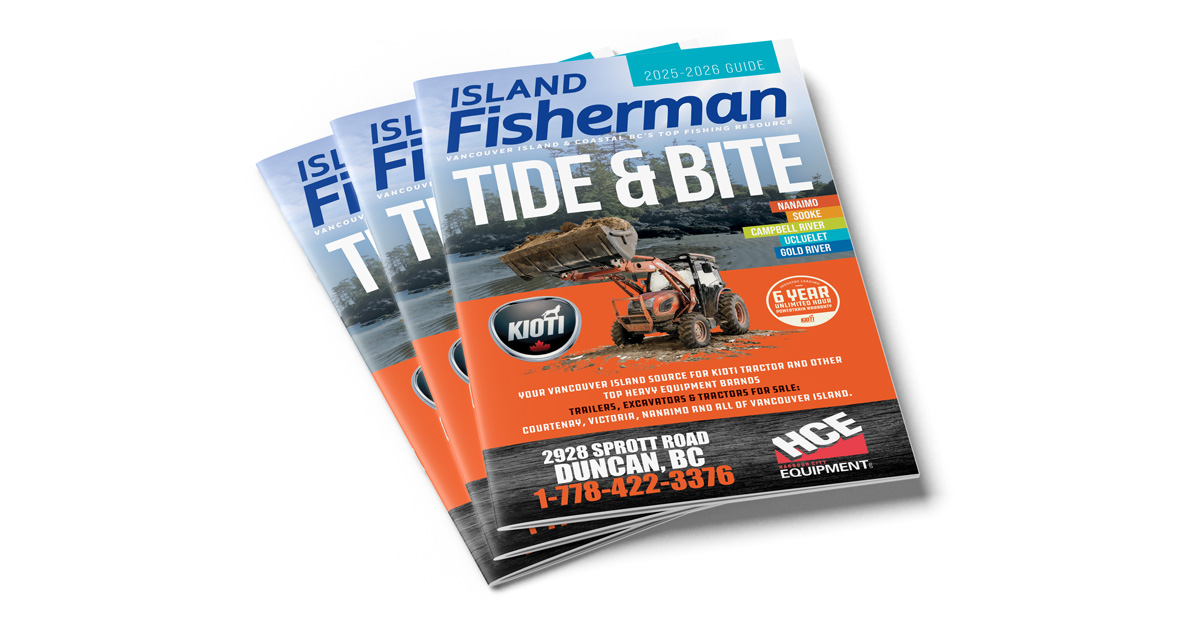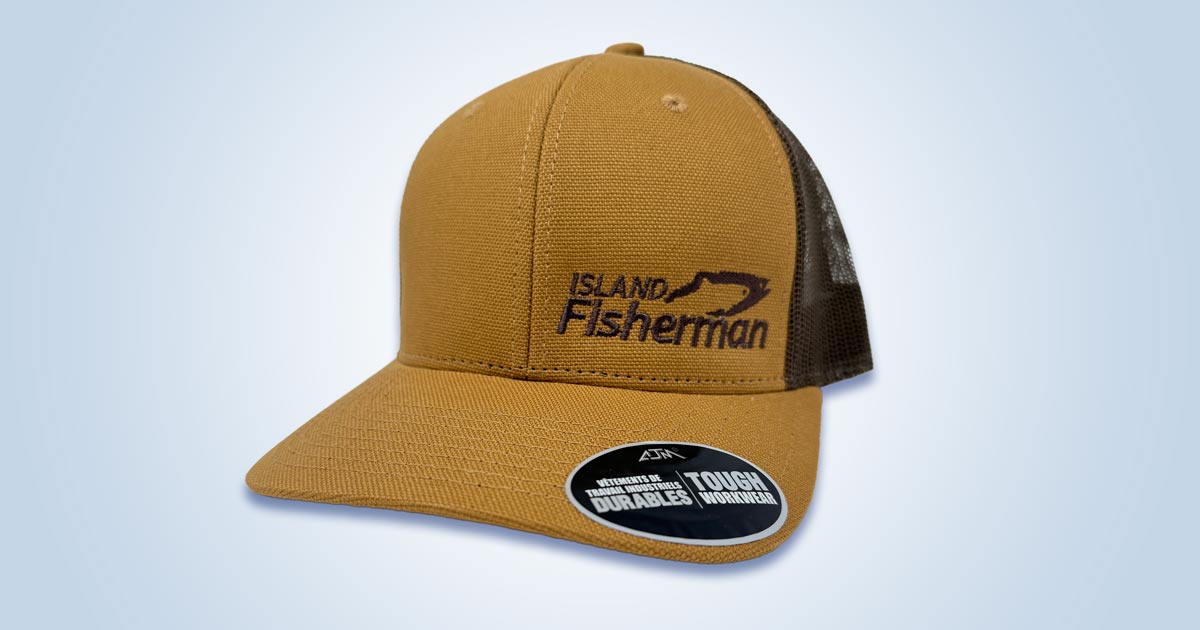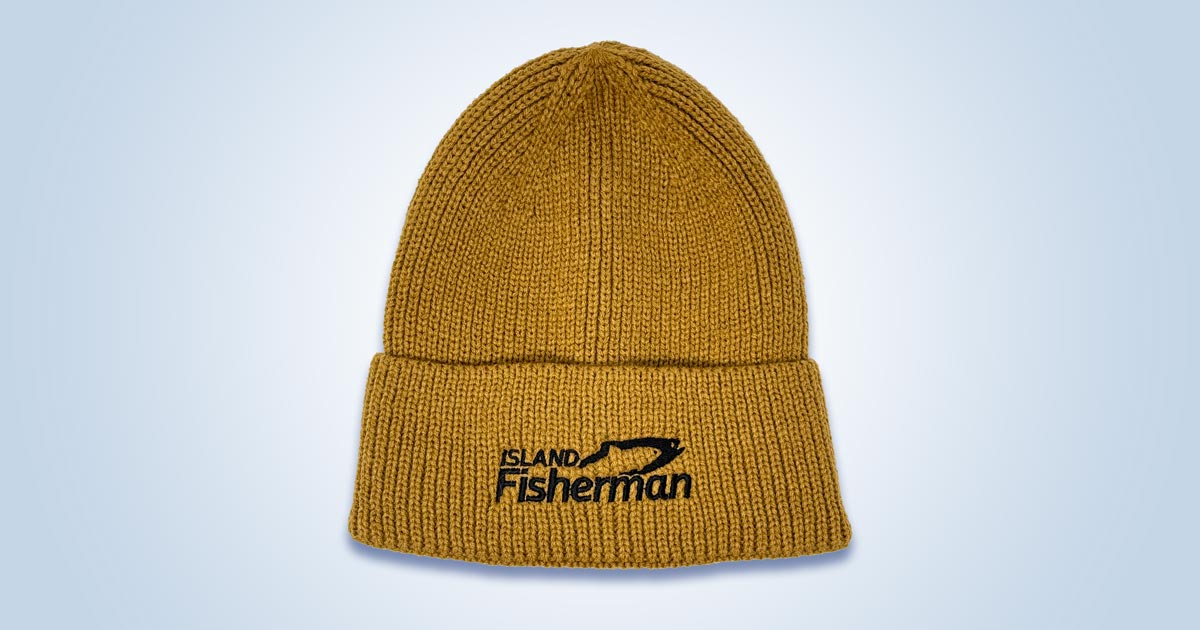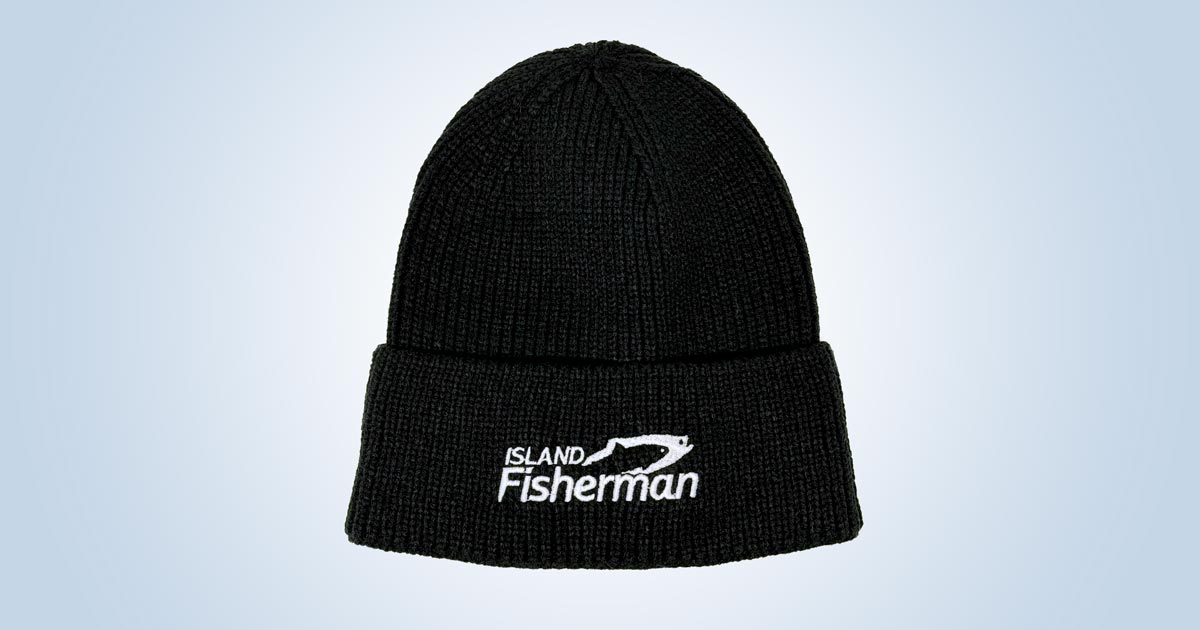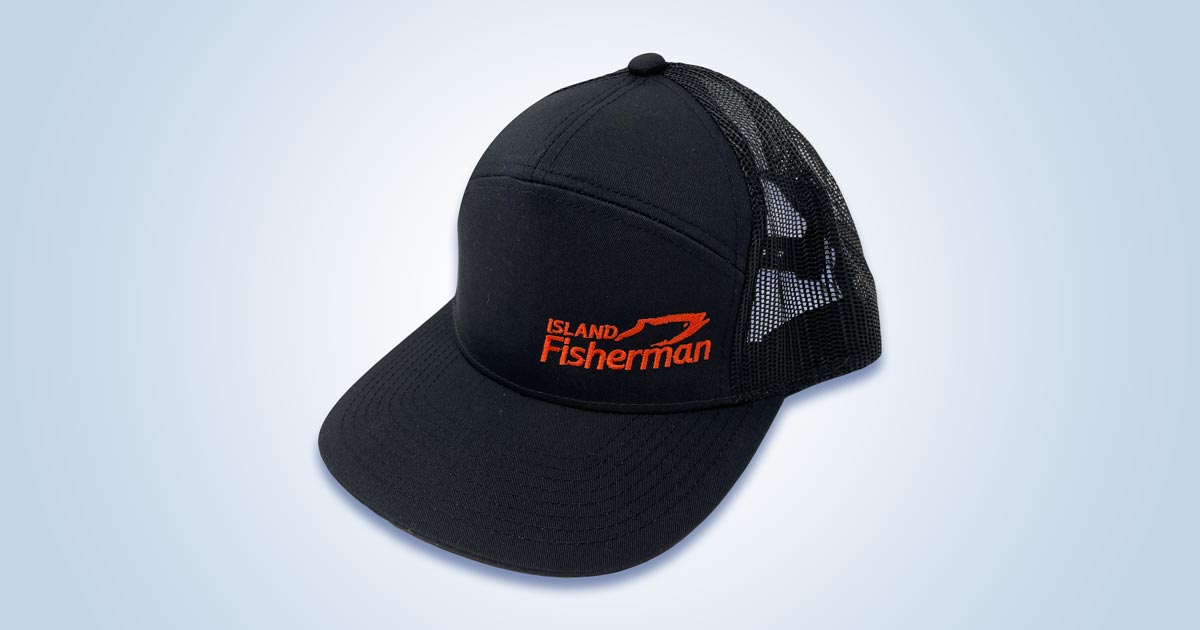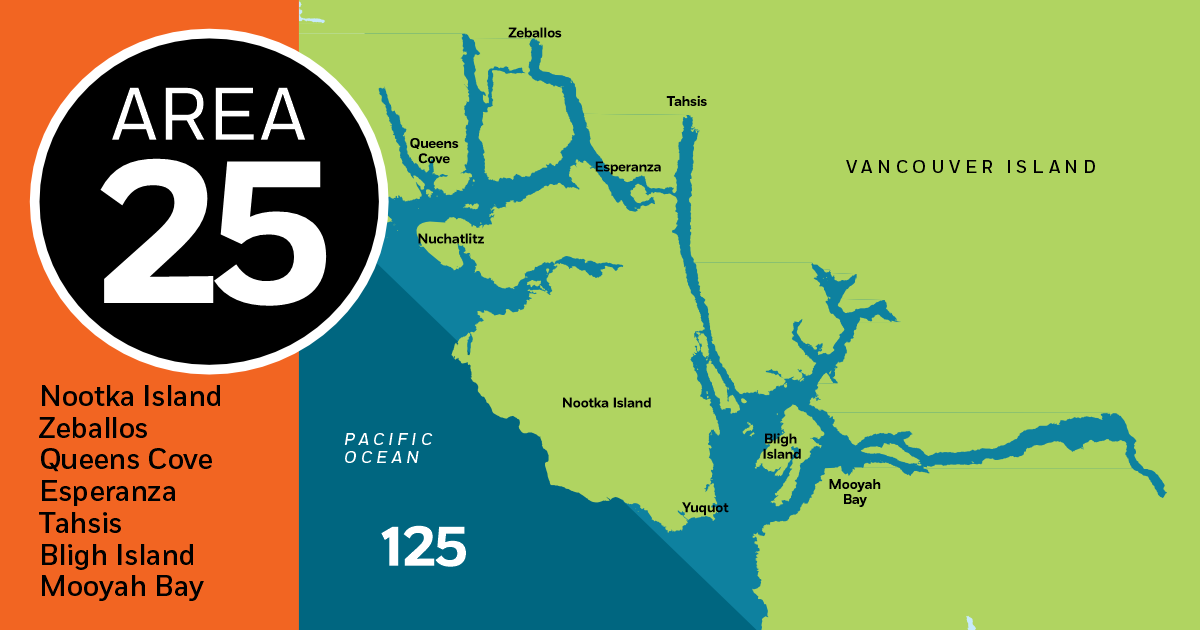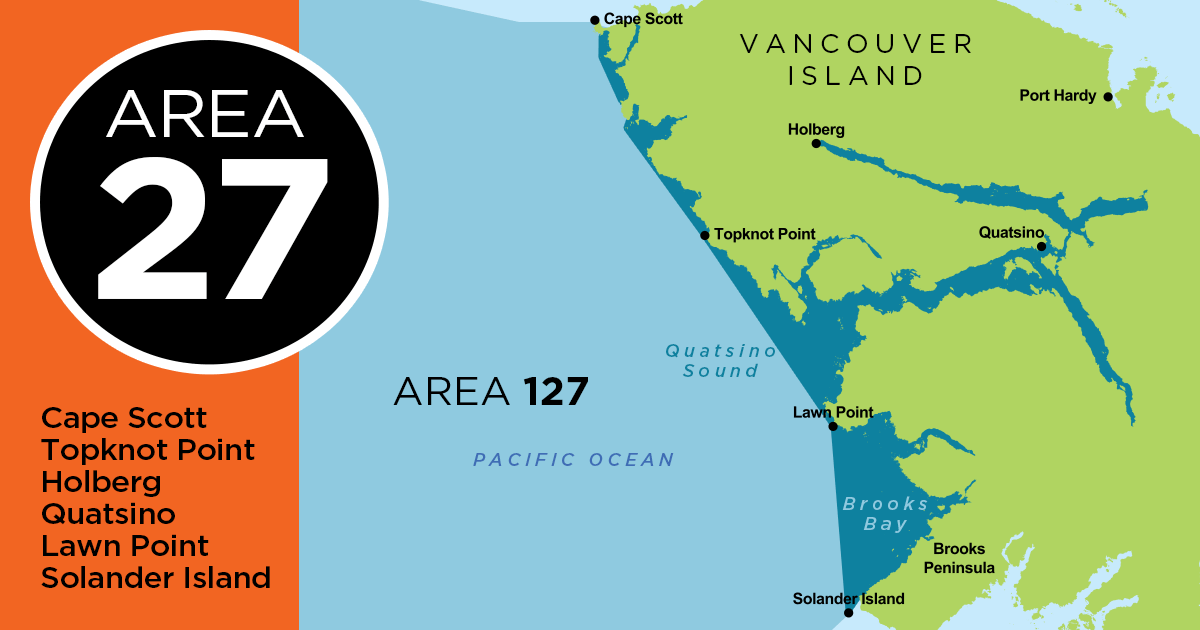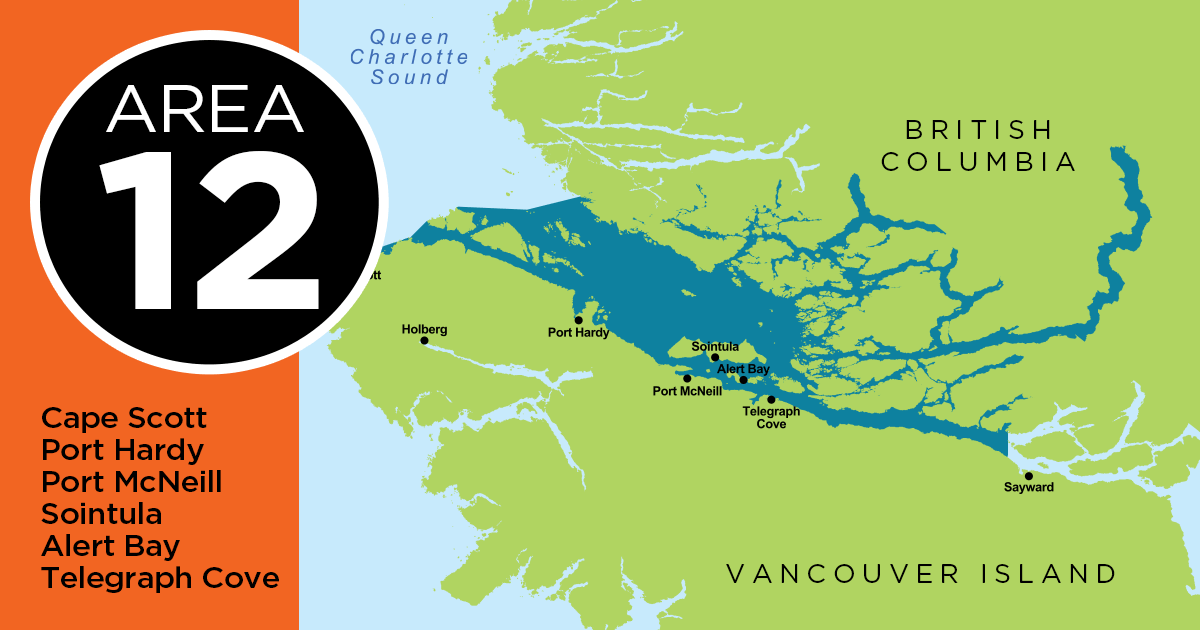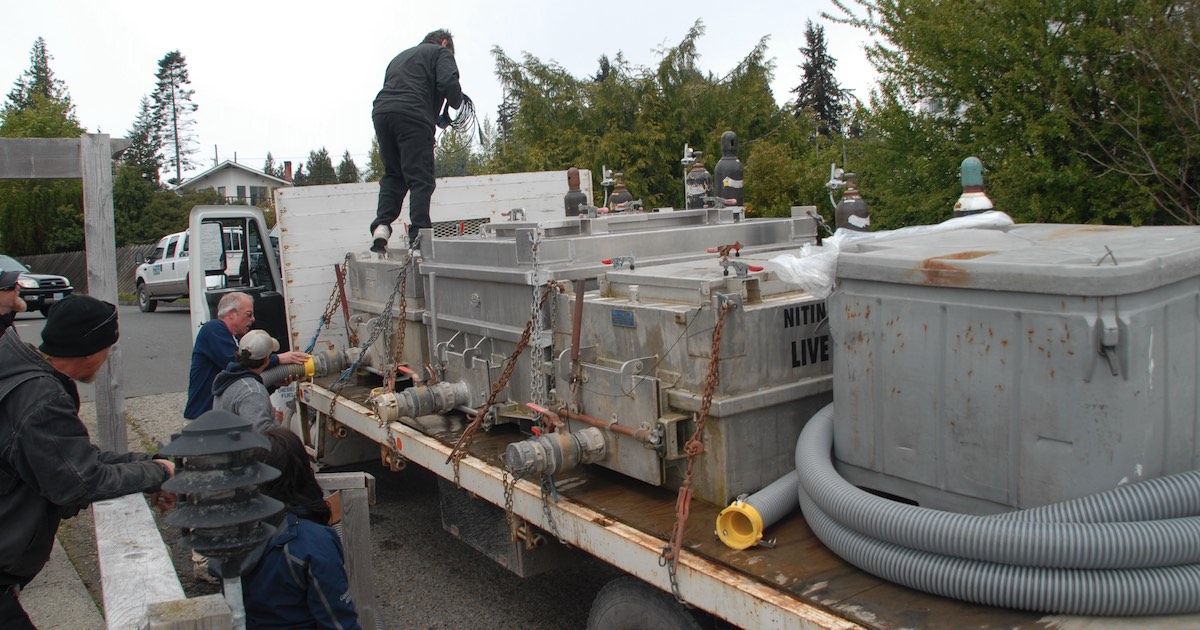
The South Vancouver Island Anglers Coalition (SVIAC) is beginning year six of its Sooke Chinook sea pen project. An immediate concern is getting enough volunteers to position the pens at Sooke Harbour Marina, prior to receiving 650,000 Nitinat hatchery Chinook smolts in the weeks to come. That work already started April 11. The multi-year project is a collaboration of anglers, enhancement volunteers, businesses, whale watchers, local and regional politicians and the Pacific Salmon Foundation. It is also supported by local First Nations.
Initial work involves towing the sea pens to the marina and securing them to the dock.
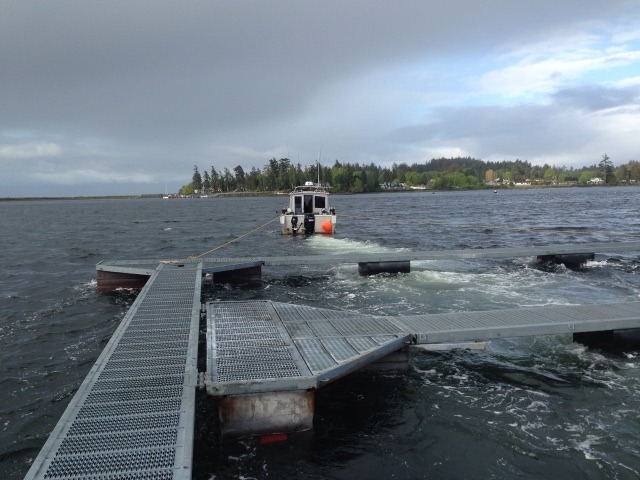
Net pens moving to Sooke Basin
Once the smolts are transported to the pens there is a 3-4 week period of regular feedings and monitoring fish health, as well as performing any required equipment maintenance. Then the smolts are released into Sooke Harbour and the pens are removed until next year.

SVIAC Sooke Chinook Net Pens smolt transfer
After five years the volunteers have perfected the sea pen system but more help is welcome to ensure the process goes smoothly. Smolt deliveries are set to occur in two batches. The first arrivals occur April 19, 20 and 21, while the second batch is coming May 3, 4 and 5.
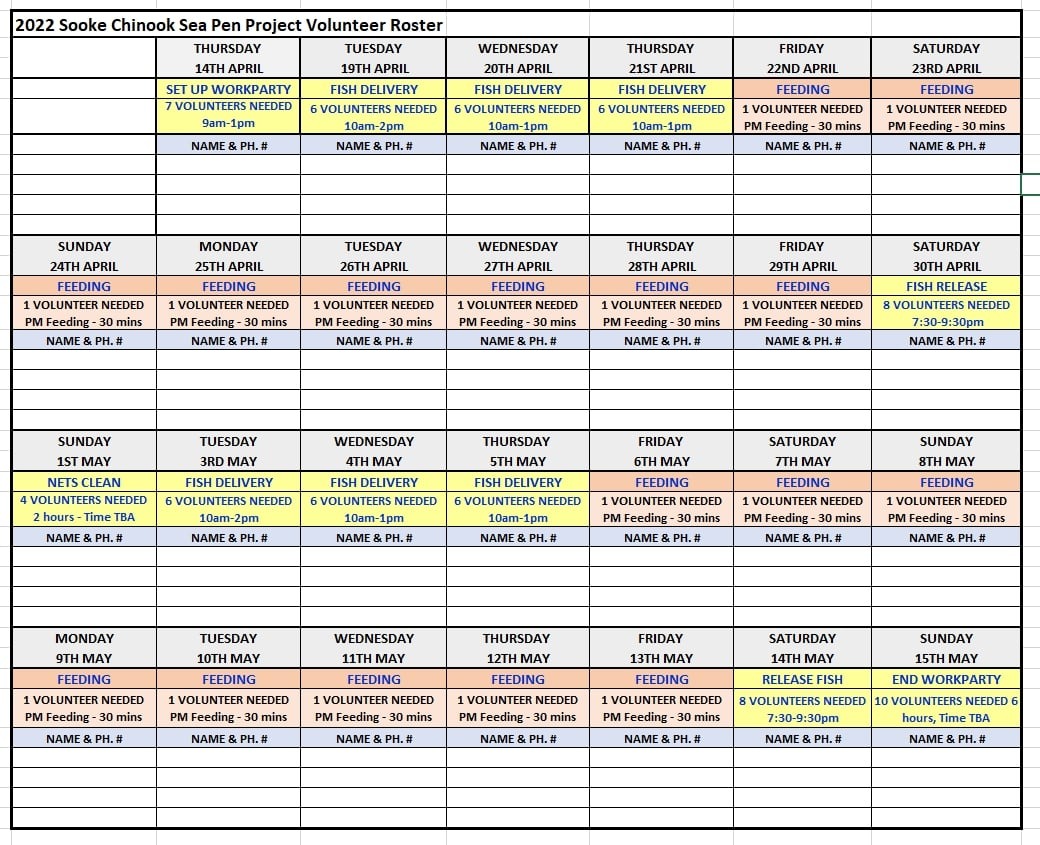
2022 Sooke Chinook Sea Pen Project Volunteer Roster
Pen rearing Chinook in salt water is nothing new. It’s been done successfully in BC since the 1980’s. However Sooke’s program is unique. Anglers have long been major contributors to and supporters of salmon restoration, but this project raises more Chinook to augment the Southern Resident Killer Whales (SRKW’s) food source while they are in southern BC waters.
The project was conceived nearly a decade ago when concerns were publically raised about declining SRKW numbers. Lack of Chinook was thought to be a significant problem for this population of salmon eating whales. At that time, under the leadership of SVIAC and its president Chris Bos, it was agreed that anglers should and could help these whales recover. It took some time for the sea pen project to receive approval from DFO. However since approval was granted, including the 2022 releases, the volunteers will have released 3.15 million smolts while raising over $325,000 for the self-funded program.
This project not only increases salmon availability for SRKW, it augments the food supply for Northern Resident Killer Whales (NRKW) and other marine mammals. According to coded wire tag recoveries the project is already contributing to recreational and commercial salmon fisheries along the coast and could provide terminal Chinook harvest opportunities for the local T’Sou-ke First Nation.
Chris Bos commented that project success is defined two ways. “Rear and release robust Chinook smolts, which has been achieved” and “see adult Chinook returning to the area, which is happening with increasing numbers”. He also recognized Glen Varney’s contribution to the project. Glen, who was trained as a fisheries technician at the Nitinat Hatchery, has acted as the on-site project leader from day one but is stepping back this year. According to Bos, “without Glen’s guidance this project would never have happened. Everyone involved is grateful for his expertise and passion for salmon enhancement”.
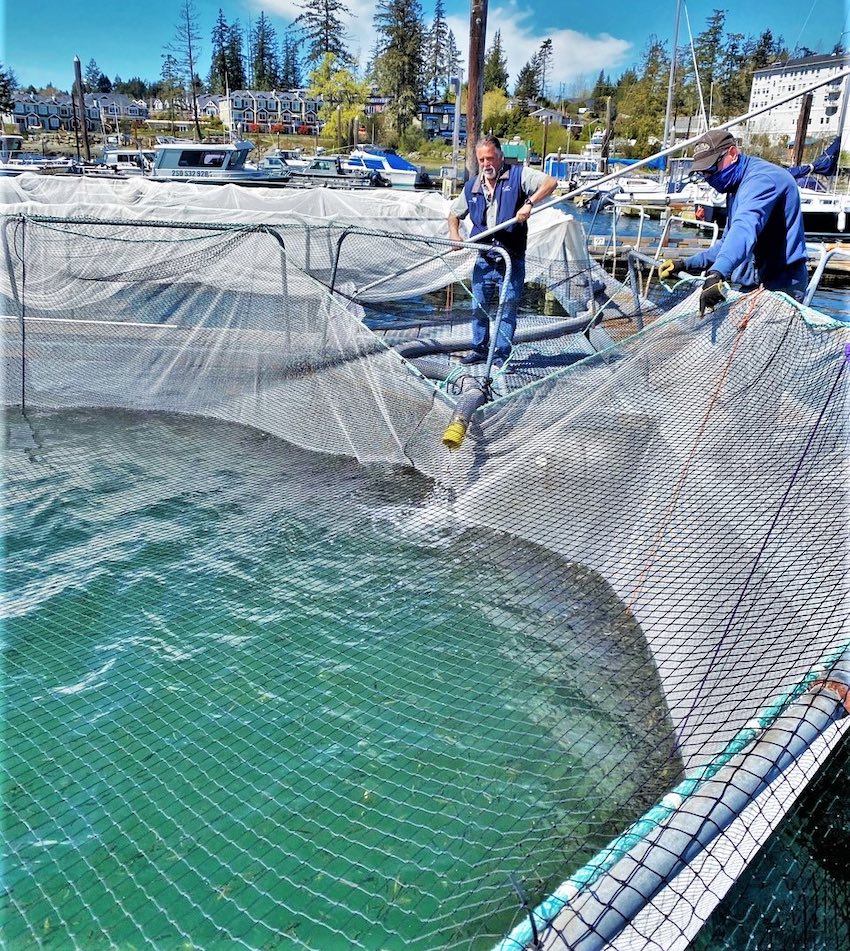
Nitinat River Smolts Going into SVIAC Pen Gen Varney Photo Apr 2020
Fortunately, Peter McCully, who is the technical advisor at the Goldstream River’s Howard English Hatchery, will be filling Glen’s role in a technical capacity. Peter pointed out that his participation “satisfies a DFO requirement that fish health be monitored by a certified fish culturist”. Two Goldstream volunteers, Sooke resident and biologist Ben Eardley and biologist in training Joscilyn Jupp, will be assisting McCully.
If you are interested in volunteering contact Chris Bos at 778-426-4141 for work dates and times.
Visit the Store
$34.99
$34.99
Featured Catch
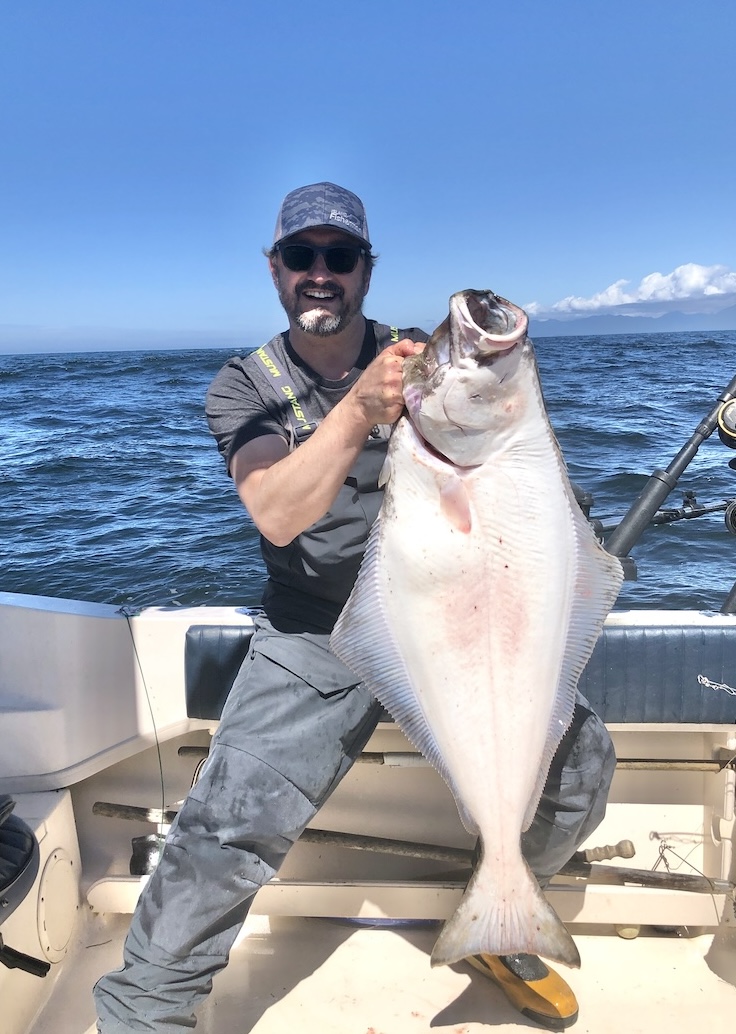
Joel Unickow halibut (Photo: Rob Frawley Lucky Strike Sportfishing Tofino)
